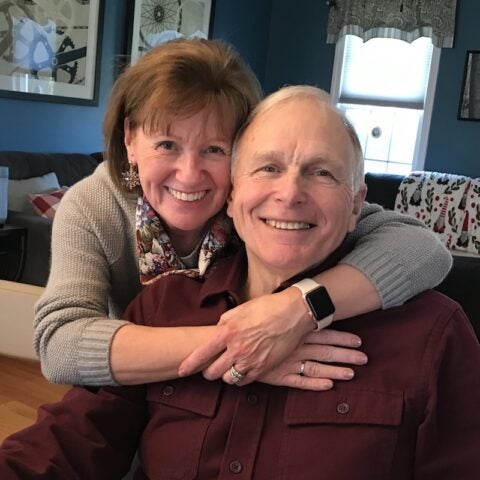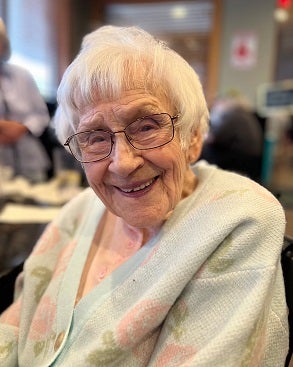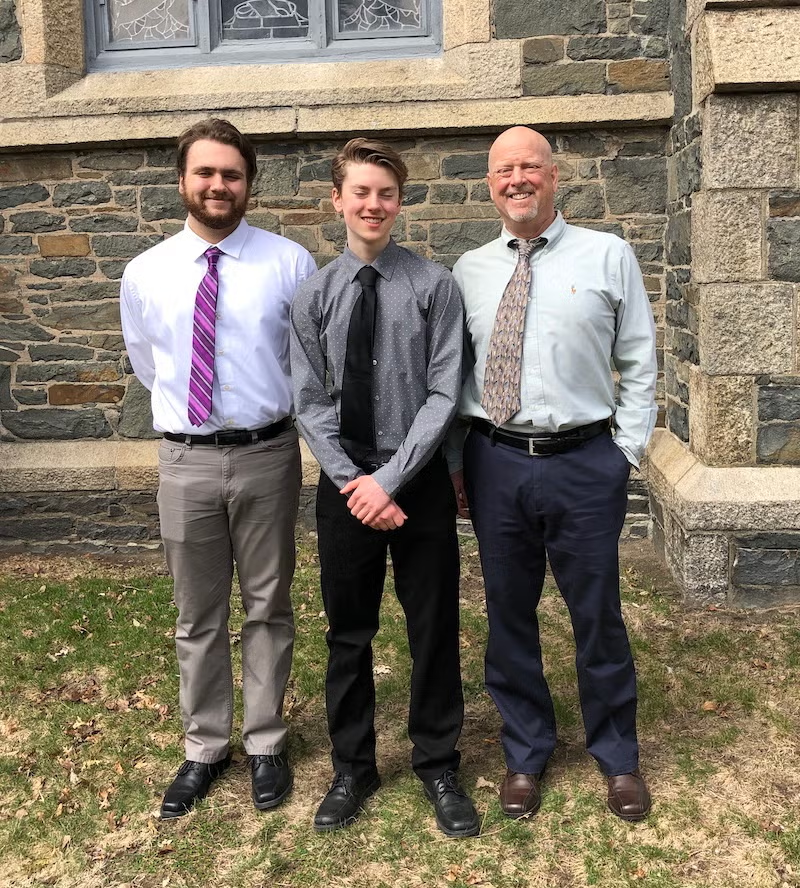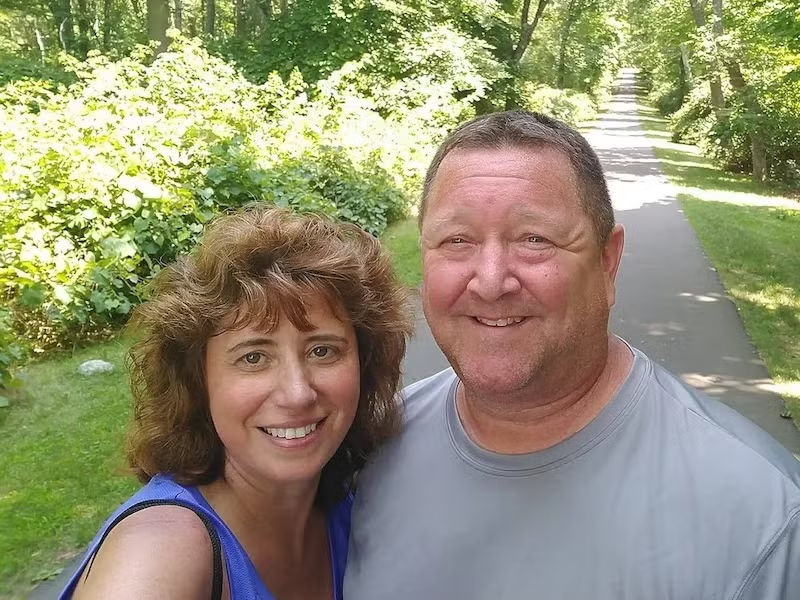Peter Celebrates Life after Prostate Cancer
Peter Akeke has faced more than his share of challenges: serving in the Air Force during the Vietnam War, an aggressive prostate cancer diagnosis, and a stroke that led to emergency brain surgery and vision problems. But when asked about his life, Peter feels only gratitude.
He attributes his positive attitude and motivation to several things: His strong faith in God. An impressive social network that includes many men who served with him in Vietnam. The close relationships he has built with his care team. And most of all, his wife, Donna, and their children.
“Donna is very involved in my care,” says Peter. “I can’t get to any of my appointments without her because of my vision, and she’s not afraid to ask the doctors questions. I wouldn’t be alive if it weren’t for her!”
Routine Bloodwork Leads to a Cancer Diagnosis
Peter’s cancer journey began shortly after he retired in 2012, when routine bloodwork revealed high prostate-specific antigen (PSA) levels and a biopsy confirmed he had prostate cancer—likely caused by the Agent Orange he was exposed to in Vietnam. After considering his options, Peter chose to have a robotic proctectomy at Boston Medical Center – Brighton. “They made six tiny holes,” he remembers. “I was never in any pain.”

Looking back, Peter is glad he did not choose the “wait-and-see” approach, as his cancer turned out to be aggressive. When his PSA levels started creeping back up a year after surgery, Peter began radiation therapy with radiation oncologist, Dr. Andris Zauls, at Boston Medical Center – South. The results were immediate, and so was Peter’s trust in Dr. Zauls. “He explained everything, like what to expect and what not to expect,” Peter recalls. “I felt really comfortable with him, and I trusted him implicitly to tell me the truth. I felt like I was his only patient.”
While the radiation was effective for years in bringing Peter’s PSA levels down, Dr. Zauls recently recommended that Peter consider new medical oncology options, which may have fewer long-term side effects than radiation or hormone therapy. “He told me, ‘I can only play Whack-a-Mole with this so many times,’” says Peter.
He agreed to meet with a medical oncologist, who prescribed darolutamide, a targeted therapy that interferes with the cancer’s ability to use testosterone. Peter is happy to share that his PSA levels are now so low that his cancer is undetectable.
The American Cancer Society (ACS) recommends that men speak with their doctor about their own prostate cancer risk and screening. Generally, the ACS recommends that men with an average risk for prostate cancer begin screening at age 50. Men at higher risk for prostate cancer should begin screening at age 45. This includes Black men and those who have a close relative (father or brother) diagnosed with prostate cancer before age 65. Men who have more than one close relative with prostate cancer before age 65 should begin screening at age 40.
Peter’s Advice to Other Men: Don’t Wait
Grateful for the health he has enjoyed for 13 years since his cancer diagnosis, 80-year-old Peter keeps in close touch with Dr. Zauls and the rest of his care team. “Once somebody says you have cancer, it never leaves you,” he shares. “But just because you get a diagnosis of cancer doesn’t mean you’re going to die. Here I am in 2025 with no pain, no side effects, nothing. I couldn’t be happier with the care I’ve gotten.”
Peter’s advice to his sons and other men is to follow PSA screening guidelines and to always be your own advocate. “A number of my friends are having trouble going to the bathroom, or they go to the bathroom three or four times a night. I say, ‘Get over to the doctor and get that checked out. It could be nothing or just an enlarged prostate, which they have medications for. If nothing else, it’ll give you a baseline if something pops up later.’”
Peter also says it helps to have a strong support system through a cancer journey. “Hope you’ve got somebody with you that loves you and will be there with you, and that’s what Donna does for me. We’ve been side-by-side since we were kids.”
Take Charge of Your Health at Boston Medical Center – South Cancer Care Services
Boston Medical Center – South’s multidisciplinary Cancer Care Services team provides expert diagnosis and treatment for all types of cancer, along with compassionate support from day one. In addition to leading medical care, patients have access to care navigation, mental health services, dietitians, social workers, and more.
Hear More from BMC South Patients
 Ann’s Secret to a Long Life: Faith, Family, and a Good Cardiologist
Ann’s Secret to a Long Life: Faith, Family, and a Good Cardiologist
Ninety-eight-year-old Ann Motekaitis still remembers the night she first met cardiologist Dr. Andrew Kriegel in July 1984. What she thought was indigestion was really a heart attack and a cardiologist-in-training named Dr. Kriegel was on her care team. That was the beginning of a bond that has lasted more than four decades.
Find Out More about Ann’s Secrets to a Long Life
 Surviving a Heart Attack with Luck
Surviving a Heart Attack with Luck
and Exercise
On the day Robert Riding had a heart attack in 2021, luck was with him. Both of Robert’s sons had learned CPR in high school, and they took turns performing CPR while they waited for the ambulance to arrive. Robert was then rushed to Boston Medical Center – South.

Unexpected Prostate Cancer Diagnosis Inspires a New Outlook
Dave O’Brien jokes that he’s “not a very exciting person,” but the past year has been anything but boring. In October 2024, a routine blood test revealed that Dave had a PSA level of 17 and a biopsy confirmed Dave had prostate cancer.
